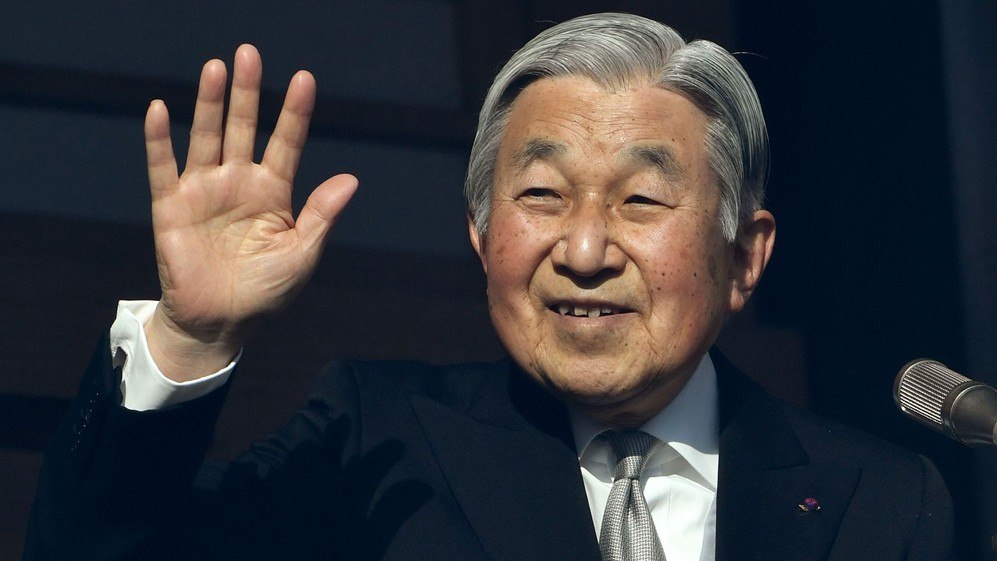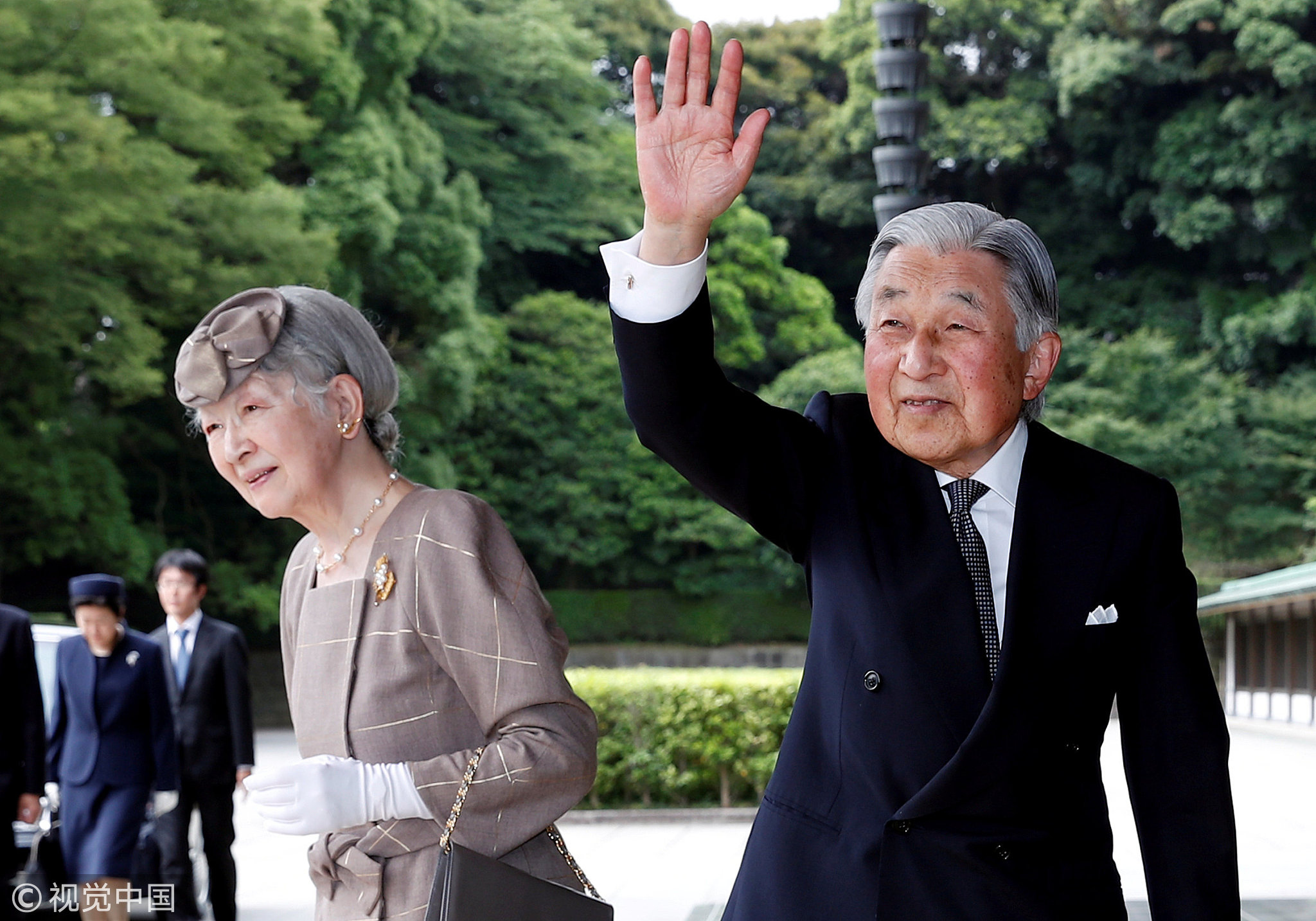
World
14:52, 02-Jul-2018
Japanese Emperor Akihito resting due to cerebral anemia
Updated
14:20, 05-Jul-2018
CGTN

Japanese Emperor Akihito canceled his public duties after suffering dizziness and nausea due to cerebral anemia, a condition caused by insufficient blood flow to the brain, a palace official said on Monday.
Akihito, 84, is set to step down on April 30 next year in the first abdication by a Japanese emperor in nearly two centuries.
The emperor was diagnosed with cerebral anemia after complaining of nausea and dizziness, said the Imperial Household Agency, which manages the imperial family's affairs.
The emperor will be monitored while he rests at the Imperial Palace in Tokyo, the agency said.

Japan's Emperor Akihito (R) and Empress Michiko arrive at the Imperial Palace before welcoming Vietnam's President Tran Dai Quang and his wife Nguyen Thi Hien in Tokyo, May 30, 2018. /VCG Photo
Japan's Emperor Akihito (R) and Empress Michiko arrive at the Imperial Palace before welcoming Vietnam's President Tran Dai Quang and his wife Nguyen Thi Hien in Tokyo, May 30, 2018. /VCG Photo
Akihito's wife, Empress Michiko, will still meet Princess Ayako, daughter of Akihito's late cousin, Prince Takamado, who was set to call on the imperial couple on Monday following the announcement of her engagement to a 32-year-old commoner.
Akihito, who has had heart surgery and treatment for prostate cancer, said in 2016 that he feared age might make it hard for him to fulfill his duties.
Once considered divine, Japan's emperor is now defined by the constitution as "a symbol of the state and the unity of the people."
Akihito and Michiko have spent much of their time trying to console victims of World War II disasters, committed by the Japanese military. He is widely respected by average Japanese.
His heir is the 58-year-old Crown Prince Naruhito.
Source(s): Reuters

SITEMAP
Copyright © 2018 CGTN. Beijing ICP prepared NO.16065310-3
Copyright © 2018 CGTN. Beijing ICP prepared NO.16065310-3